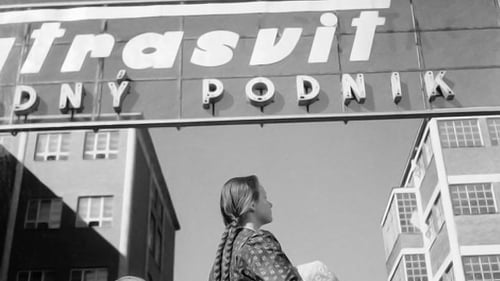
Director of Photography

Director of Photography

Director of Photography

Director of Photography
Slovak movie is based on the novel by the prominent representative of Slovak prose František Hečka, who was in 1952 awarded the State Prize. The novel and the movie successfully capture the development of Slovak village after the liberation in 1945. The narrative is centred around the characters of the old Púplava, who after the liberation begins to organise a new village life, and his struggle for the construction of settlements Mrzáčky, burnt by the fascists. It is centred around the conflict, greatly reflecting the situation of the countryside at this time: the conflict between the rural poor and the rural rich. In the movie, a rich personal and emotional life of other heroes pulsate besides the main storyline. The movie ends with the final defeat of the reactionary forces by Communists in February 1948, taking over all power in the state of workers and peasants. - "The Wooden Village" is released in celebration of the 7th anniversary of the Communist February Victory.

Director of Photography

Director of Photography

Director of Photography

Director of Photography

Director of Photography

Director of Photography

Director of Photography

Director of Photography

Director of Photography
Strong-willed peasant girl Katka disobeys her father and heads to the city to work in a factory, where no one knows quite what to make of her.

Director of Photography

Director of Photography

Director of Photography

Director of Photography

Director of Photography

Director of Photography

Director of Photography

Director of Photography

Director of Photography

Director of Photography

Camera Operator
체코 애니메이션의 대가 카렐 제만의 초기를 대표하는 단편. 크리스마스 날 밤, 새 장난감들을 선물 받은 소녀는 행복하게 잠이 든다. 하지만 곧 이상한 소리에 잠에서 깨고, 자신이 버린 헌 장난감이 살아나 신나게 춤을 추는 것을 발견하게 된다. 흑백의 퍼펫 애니메이션으로 1946년 칸영화제에서 단편 부문을 수상한 환상적인 작품. (2010년 제4회 서울국제가족영상축제)

Camera Operator

Director of Photography

Director of Photography

Assistant Camera
An experimental film from Jirí Lehovec, mixing the sound process with animated rhythms.

Director of Photography
Karol Plicka was an important musician and composer. He recorded folk songs immediately after hearing them in musical notation to preserve them for future generations. Similarly, he records and interprets traditions associated with dance, folk song and local stories that vary from region to region in his film The Eternal Song. The short documentary presents merry-making in Slovak and Czech regions that are changing with the coming modernization and transformation of musical records.

Director of Photography

Director of Photography




